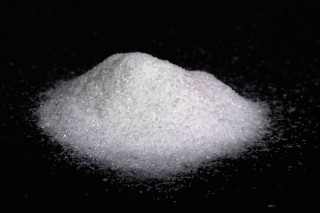Why Do Americans Still Think MSG Is Bad for You?
Why do so many Americans, even very well-educated ones, still believe that
MSG is bad for our health? It is an urban myth that it causes allergic
reactions. Many studies from around the world have proven that MSG is no more
harmful to our health than plain salt, yet the urban myth in the US continues.
In fact, in large quantities, salt is more harmful to our health than MSG is.
When restaurants don’t use MSG, they just put more salt which is worse. I think
it’s just because the name “monosodium glutamate” sounds too scary. If we called
salt by its chemical name, I think the same thing would happen: “Would you like
some sodium chloride on your French fries?”
Some people feel lethargic after eating Chinese food which lead to this
myth called “Chinese Restaurant Syndrome”. I believe this has to do with the
heaviness of the food. I feel the same way whenever I eat rich, heavy, greasy
food. Cheap food in general tends to be so, specially cheap Chinese, Indian, and
deep-fried food. If you were to stuff yourself with rich French food loaded with
butter, cream, and cheese, the same would probably happen but because French
food is generally expensive, we don’t stuff ourselves with it. And, that leads
to another argument that enhancing the flavors with MSG would be good for us
because we would feel more satisfied with less calories.
The main reason why the urban myth of “Chinese Restaurant Syndrome” spread
so fast and wide, I believe, is xenophobia. Chinese food was a perfect candidate
for it. MSG is strongly associated with Chinese food but it was actually
invented in Japan, and the Japanese people probably consume more MSG than the
Chinese.
MSG first went into production in 1909 in Japan, and since then, the
Japanese people have been using it in just about everything. It’s nearly
impossible to avoid MSG in Japan, or even in Japanese grocery stores in the US.
You pick up any food product randomly and look at the list of ingredients, you
will find MSG. For over a century, the entire nation of Japan has been consuming
MSG every day. But, as it is commonly known, the Japanese are significantly
healthier and live longer than Americans. So, what is there to be concerned
about? More than one generation of people have already consumed it all their
lives. Cutting down on sodium consumption is a common health concern even in
Japan, but I’ve never heard anyone talking about cutting down on MSG.
It is true that using MSG in everything you cook is a form of cheating,
but the same is true for salt and sugar. When you eat fruit, say strawberries or
a grapefruit, you would want it to be naturally sweet, and not have to add sugar
to it artificially. The same is true for savory food. You want to enjoy the
natural amount of salt that’s in the ingredients, and if you get high-quality
ingredients full of natural flavors, you wouldn’t need to add salt. We tend to
add salt to food when flavor is lacking. High-end restaurants don’t usually have
salt on the table, and asking for more salt is considered an insult. In that
sense, yes, adding MSG is a form of cheating; we should enjoy the naturally
occurring MSG if possible. But why single out MSG as a form of cheating? If MSG
is cheating, then chefs should not add any salt or sugar in any of their food
either, but they all habitually do. So, it’s hypocritical to single out use of
MSG as cheating.
- Umesh Shanmugam


No comments:
Post a Comment